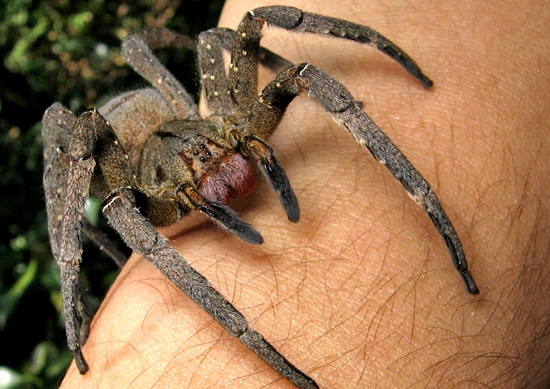
All mammals including humans feed their infants with milk and it makes them unique when compared to other creatures in the animal kingdom. However, a new study report published in journal Science has revealed that jumping spiders, majorly seen in South East Asia does the same for their babies.
Jumping spiders feed their babies with a nutritious liquid in their body, scientifically known as Toxeus Magnus and it contains sugars, fats and proteins. During the study, researchers found that offspring spiders used to drink their mother's milk even after they reach sexual maturity.
It should be also noted that only daughter spiders were allowed to return to the breeding nest after sexual maturity. Whenever adult sons used to approach the mother for milk, they got attacked, an apparent step to reduce the chances of interbreeding.
Rui-Chang Quan, a researcher at the Chinese Academy of Sciences and the lead author of the study revealed that the nutritious liquid present in the body of jumping spiders is nothing less than milk.
"It's a puzzling observation for a species assumed to be noncolonial. It's possible that the jumping spider might provide either prolonged maternal care or delayed dispersal. We decided to test it," said Rui-Chang Quan, Eurekalert.org reports.
Researchers also believe that the process of lactation may be quite common among invertebrates, and they added that further researches are needed to figure out more creatures other than mammals which feed their babies with milk.
"Our findings demonstrate that mammal-like milk provisioning and parental care for sexually mature offspring have also evolved in invertebrates. We anticipate that our findings will encourage a reevaluation of the evolution of lactation and extended parental care and their occurrences across the animal kingdom," added Chen.








